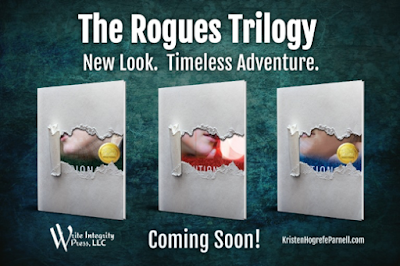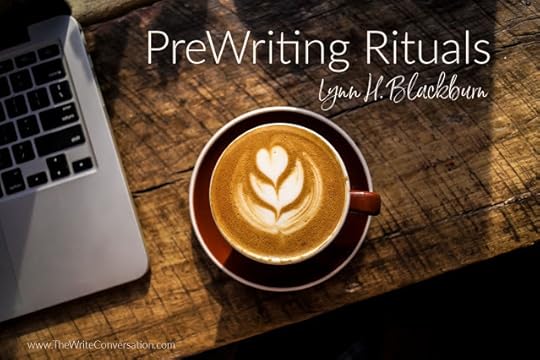Edie Melson's Blog, page 161
June 11, 2021
Understanding How Our Emotions Fuel Writing Procrastination

by Beth K. Vogt @BethVogt
Procrastination seems to be a common problem among writers.
If I could, I’d ask you to raise your hands if you procrastinate about writing. I’ll assume the majority of you would admit to ignoring your various deadlines, choosing instead to clean out your junk drawer or to organize your sea glass collection or to read another author’s book that’s languished too long on your to-be-read pile.
I’ll also admit writing this post is an act of procrastination. Don’t get me wrong, I had a deadline to meet for this blog, but I also have a novella deadline. Right now? I put off that project by focusing on writing today’s post.
Sneaky, right?
We could talk about how to stop procrastinating. I could list 5 easy steps or 3 quick tips to conquer procrastination. But as I considered how easy it is for me to put things off—even things I want to do, things I know I need to do—I wondered why.
Why do I procrastinate?
I found an interesting answer to that question in a 2019 New York Times article titled “Why You Procrastinate (It Has Nothing to Do with Self-Control).” In the article, Dr. Fuschia Sirois, a professor of psychology at the University of Sheffield, said procrastination is irrational. Thank you very much! She added, “People engage in this irrational cycle of chronic procrastination because of the inability to manage negative moods around a task.”
Okay … Professor Sirois says we procrastinate because we’re moody.
Sort of.
In the same NYT’s article, Dr. Tim Pychyl, a professor of psychology and member of the Procrastination Research Group at Carleton University of Ottawa, said, “Procrastination is an emotion regulation problem, not a time management problem.”
In other words, certain challenging tasks, such as writing a first draft or meeting a deadline, create negative emotions like anxiety or doubt or frustration. We cope with these unwanted emotions by procrastinating. However, putting off writing only increases our anxiety, doubt, and frustration—creating the “irrational cycle of chronic procrastination” mentioned by Dr. Sirois.
Makes sense to me.
I procrastinate. You procrastinate. But it’s not that we need time management hacks. It’s that we need to understand—and manage—our emotions better.
When the urge to avoid a writing project hits, we need to stop and evaluate what we’re feeling.
Self-doubt? Resentment? Insecurity?
Why do I procrastinate about writing my novella? I’m anxious because I always get interrupted multiple times when I write (and I do mean always). Interruptions frustrate me and cause my creativity to fizzle. Why start writing when I’m going to be interrupted?
So now I understand the specific emotion fueling my procrastination.
Next step? To finish writing this blog post and get back to writing my novella. Yes, I’m anxious, but I can deal with that by putting on my headphones—great way to block out distractions—and announcing, “I’m writing!” to my family. A verbal “Do Not Cross This Line,” if you will.
Anxiety and frustration dealt with. Blog post written. Time to write my novella.
How has learning our emotions fuel our procrastination helped you as a writer?
TWEETABLEUnderstanding How Our Emotions Fuel #Writing Procrastination - @BethVogt on @EdieMelson (Click to Tweet)
 Beth K. Vogt believes God’s best often waits behind the doors marked “Never.” Having authored nine contemporary romance novels and novellas, The Best We’ve Been, the final book in Beth’s Thatcher Sisters Series with Tyndale House Publishers, releasers May 2020. Other books in the women’s fiction series include Things I Never Told You, which won the 2019 AWSA Award for Contemporary Novel of the Year, and Moments We Forget. Beth is a 2016 Christy Award winner, a 2016 ACFW Carol Award winner, and a 2015 RITA® finalist. An established magazine writer and former editor of the leadership magazine for MOPS International, Beth blogs for Learn How to Write a Novel and The Write Conversation and also enjoys speaking to writers group and mentoring other writers. Visit Beth at bethvogt.com.
Beth K. Vogt believes God’s best often waits behind the doors marked “Never.” Having authored nine contemporary romance novels and novellas, The Best We’ve Been, the final book in Beth’s Thatcher Sisters Series with Tyndale House Publishers, releasers May 2020. Other books in the women’s fiction series include Things I Never Told You, which won the 2019 AWSA Award for Contemporary Novel of the Year, and Moments We Forget. Beth is a 2016 Christy Award winner, a 2016 ACFW Carol Award winner, and a 2015 RITA® finalist. An established magazine writer and former editor of the leadership magazine for MOPS International, Beth blogs for Learn How to Write a Novel and The Write Conversation and also enjoys speaking to writers group and mentoring other writers. Visit Beth at bethvogt.com.
June 10, 2021
Book Marketing Secrets Every Author MUST Know!

by Edie Melson @EdieMelson
Over the course of my career I have published through big publishers and through smaller, traditional presses. Of course there are differences between what support a big and small publisher provides. But—and we all need to wrap our brains around this one truth—our responsibility as the author is fairly consistent. Today I’m going to share 7 book marketing secrets I’ve learned from experience, and some I’ve learned by watching other authors.
7 Book Marketing Secrets
1. Your audience of readers is interested in connecting with YOU, not your publisher. Readers don’t care if you’ve landed a big deal with a big publisher or a small deal with a small one. What they want is good content and a place to connect with you. Part two of this is the fact that your readers want genuine and authentic interaction. If your readers follow you on social media and then discover that it’s not really you—only an assistant or lackey—interacting with them, they’ll feel betrayed. For newer writers who aren’t starting with huge audiences, this means you’re going to have to be on social media consistently four to five days a week. For those who are already big names, you may have to cut back on the amount of interaction so you have time to keep it genuine.
2. Don’t use the wrong URL for your book on Amazon. Most of you have probably read about the fact that Amazon sometimes deletes legitimate reviews. Part of that problem is the long URL many authors include in their promo and social media information.
This is the WRONG link: https://www.amazon.com/Youre-Weary-Embracing-Exploring-Creativity/dp/1946708267/ref=tmm_pap_swatch_0?_encoding=UTF8&qid=1535940502&sr=1-1
https://www.amazon.com/Youre-Weary-Embracing-Exploring-Creativity/dp/1946708267?crid=MY1B1SLG3BUJ&keywords=soul+care+edie+melson&qid=1537275941&sprefix=soul+care%2Caps%2C150&sr=8-1-fkmrnull&ref=sr_1_fkmrnull_1
This is the RIGHT link: https://www.amazon.com/Youre-Weary-Embracing-Exploring-Creativity/dp/1946708267/
https://www.amazon.com/Youre-Weary-Embracing-Exploring-Creativity/dp/1946708267?
You see, everything from ref on is a special code that allows Amazon to track when this link was shared. If I post the wrong link, it looks like all my reviews came from the same source and could have been paid for. There are other things coded into the longer part of the link, but trust me when I say it will cut way back on number of reviews Amazon lets you keep.
3. A small group of readers dedicated to helping you is an author’s secret weapon. For the first time, I assembled a launch team. (Here are the links to two posts I shared – Street Teams for a Book Launch and How a Launch Team Helped Promote MyBook ) In seven weeks, this team of twenty-eight helped my book visibility by giving me over 200,000 social media impressions. I did my best to make the launch not about me, but about what God was doing. I stayed in weekly contact with them, and provided a mini-study on praying for our children. The keys to a group like this are:
Regular—genuine—contactValue for themEasily shareable content (my publisher generated memes and tweetables to take the work out of sharing for them)
4. Your readers don’t know the publishing biz so you have to let them know how to help you. Readers aren’t writers. They aren’t aware of how important reviews are. As a matter of fact, most of them think only professionals write reviews. If you want your readers to write reviews, you’re going to have to ask for them and then provide instruction on how to do it. NOTE: keep it simple. Don’t haunt them with requests that make it seem like they’re back in school and being asked to write a book report.
5. Giveaways make a difference. A gift basket with swag that you can share on social media, a drawing at a book signing, and extra downloads when they share or order your book will provide extra incentive. These don’t have to break the bank. I made a bunch of hand-beaded bookmarks for my book launch at our local Barnes & Noble and they were a huge hit—and helped sell a lot of extra books.
6. For better numbers, keep your interviews relevant to what’s going on. For instance, in 2016, While My Child is Away released right before school started back in the fall. I had great response when I sent out interview requests when I tied it to the time of year. I used this hook: When I was growing up, back-to-school was a time of excitement. In today’s climate, it can be a time of anxiety—for parents and children. I have a book that addresses how prayer can bring peace in times of stress.
7. Don’t forget the pictures. We’ve all heard the saying, A picture is worth a thousand words. There’s a reason—it’s true. Take pictures of yourself signing the contract, celebrating when you turn in your manuscript, getting a copy of your ARC, and especially that box of author copies. These things build momentum and enthusiasm. Your readers begin to anticipate what’s coming and cheer you on as a heroine. After the book arrives, keep the pics coming. Take shots of book signings, book tables at conference, where ever you happen to be. Always share these on social media.
And especially take pictures when your book is in stores and libraries. Then go one step further—TAG THE STORE IN THE PICTURE AND SOCIAL MEDIA POST. This is free advertising for them and they remember the authors who do this.
These are the things that I’ve learned about promoting and launching a book. I’d love to know what you’ve learned. We’re always better together!
Don’t forget to join the conversation,Blessings,Edie
TWEETABLE7 Book Marketing Secrets Every Author MUST Know - @EdieMelson (Click to Tweet)
 Edie Melson is a woman of faith with ink-stained fingers observing life through the lens of her camera. No matter whether she’s talking to writers, entrepreneurs, or readers, her first advice is always “Find your voice, live your story.” As an author, blogger, and speaker she’s encouraged and challenged audiences across the country and around the world. Her numerous books reflect her passion to help others develop the strength of their God-given gifts and apply them to their lives.Connect with her on her website, through Facebook, Twitter and on Instagram.
Edie Melson is a woman of faith with ink-stained fingers observing life through the lens of her camera. No matter whether she’s talking to writers, entrepreneurs, or readers, her first advice is always “Find your voice, live your story.” As an author, blogger, and speaker she’s encouraged and challenged audiences across the country and around the world. Her numerous books reflect her passion to help others develop the strength of their God-given gifts and apply them to their lives.Connect with her on her website, through Facebook, Twitter and on Instagram.
June 9, 2021
The ABC’s of Newspaper Writing, Part One

by Julie Lavender @JLavenderWrites
A wealth of sayings about “old news” abounds, but the truth is, newspaper outlets need fresh content on a daily basis. Or, at least as often as the newspaper comes out in your neck of the woods.
And that means, as a freelancer, you have many opportunities to gain writing credits by contributing news articles, lifestyle stories, and much more to your local newspaper publication.
To help you learn the lingo of the newsroom, commit these definitions to your memory:
Above-the-fold – the first story of the newspaper, on page one, above the horizontal fold of the newspaper and just below the name of the newspaper. Typically, the article “above the fold” is the most important news of the day or a prominent story about a well-known community member or institution. (I still remember my first, above-the-fold story, as a freelancer!)
AP - the abbreviation for Associated Press. The AP is a non-profit news agency company. Most local newspapers include some AP-written content in their papers for national and global headlines.
Art only – a photograph with an explanatory caption that does not have an accompanying story.
Assignment – a story given to a reporter to cover.
Banner – a headline on the first page, written in large, bold font and extending from one side of the paper to the other.
Bump – to move a story to another location in the newspaper or to another day.
Byline – the writer’s name, printed at the top of the story, following the headline.
Copy – all material turned in to an editor for publication that includes the written story and the accompanying photographs
Cutline – sometimes called a ‘caption,’ the cutline is the information beneath a photograph that describes it. The freelancer is responsible for supplying the information about the photograph, unless a newspaper staff photographer takes the picture.
Dateline – the word at the beginning of the story that tells the location or origin of the story.
(Believe it or not, ‘dingbat’ and ‘dummy’ are newspaper terms, but I’ll let you curious ones look those up in all your spare time!)
Ear – the corner at the top of the front page, left side or right side. Brief news blurbs are included here, like weather-related news or a mention of a special feature included in the newspaper for that day.
Feature – a story with more of an entertainment value, rather than news value. (Most of my faith-based stories fit in this category. I’ve shared many stories about God’s work in a particular person in the community as a feature article.)
Flag – the newspaper’s name on the first page.
Folio – the information printed on the paper that includes the date and page number (and includes the price of the paper on page one).
Gutter – the margin between inside, facing pages that includes the vertical fold of the paper.
Headline – the title of a newspaper story.
Inverted pyramid – the placement of the most important parts or facts of a story in the first paragraph or two and the remaining parts of the story written in descending order of importance.
Jump – to continue a story to another page of the newspaper.
Kill – to take out part of a story, usually because of limited space, or to eliminate the story altogether.
Lead (or lede) – the first sentence or opening paragraph of an article that summarizes the story and grabs the readers’ attention.
Masthead – the blurb that states the title of the paper, address of the newspaper office’s physical location, and publisher’s ownership info, and often includes subscription prices and pertinent phone numbers for each department of the newspaper. The masthead is most often found on page two of the paper.
Morgue – the area of the newspaper office where back issues of the paper are kept.
Newsprint – the paper on which newspapers are printed.
Nut Graf – short for “nut paragraph” and means the summary paragraph that explains “in a nutshell” what the story is about.
Obit – short for obituary.
Op-ed – a page opposite of the editorial page where community members can have their opinions presented through guest writings. (‘Editorials’ are articles that represent the opinion of the editor and/or the newspaper on a particular subject.)
Orphan – part of a word that carries over to a line by itself.
Press Run – total number of copies printed for an edition of the newspaper.
Pullout – a sentence or two pulled from a story, enlarged, and placed at the top of the story to draw readers’ attention.
Put the Paper to Bed – that moment when the newsroom signs off on all the pages and the newspaper goes to press.
Quarterfold – a newspaper insert with some sort of extra material, like a television guide that is sometimes included, or in the case of my newspaper, a once-a-month insert called MOMents that contains feature stories pertaining to moms and women. The insert gets its name because of the size – a standard newspaper is folded into quarters with a fold on the left side such that it reads like a “mini” newspaper.
Release – sometimes called a “press release.” Information about a particular event or person given in advance to a newspaper by the source of the news.
Slant – the angle of a story.
Source – the person, book, survey or other outlet that supplies information about a story.
Spin – a method of writing a story to produce a desired interpretation
Stringer – a part-time reporter; also called a “news correspondent.”
Typo – a mistake made during the production of the story (that most reporters blame on those that do the layouts of the paper!!)
UPI – abbreviation for United Press International. AP and UPI are the two major international sources of news stories for newspapers.
Evergreen – a story that can run in a newspaper at any time and be pertinent; a timeless or perennial article
Widow – a word or paragraph that carries over to the top of the next column or a single word at the end of a paragraph left on a line by itself.
Wire Services – the collective term for news-gathering agencies that gather and disseminate news to subscribing newspapers. AP and UPI are two forms of wire services.
Extra – a term from the ‘old days’ of newspapers that meant a special edition of a newspaper printed for breaking news. Most newspaper agencies can no longer afford to print ‘extras,’ and with online services, the need is no longer there, either.
Yellow journalism – fake or sensationalized news.
Zoned Edition – an edition printed for a specific area that includes more localized news or advertising.
And there you have it! Some lesser-known bits of jargon and some commonly-known terms, too, to keep you in-the-know for newspaper writing! If you’re a journalist, share a recent God-story you wrote for your newspaper. And if you’re not, now that you have the A B C’s of Newspaper Writing, try your hand at submitting a stringer story today!
(And, if nothing else—maybe you learned a word or two for a Jeopardy solution or crossword puzzle answer!)
TWEETABLEThe ABC’s of Newspaper Writing, Part One - @JLavenderWrites on @EdieMelson (Click to Tweet)
 Julie Lavender, author of 365 Ways to Love Your Child: Turning Little Moments into Lasting Memories (Revell), has written close to 1000 newspaper articles. Connect with Julie on social media—she’d love to help you earn writing credits by submitting to your local paper!
Julie Lavender, author of 365 Ways to Love Your Child: Turning Little Moments into Lasting Memories (Revell), has written close to 1000 newspaper articles. Connect with Julie on social media—she’d love to help you earn writing credits by submitting to your local paper!
June 8, 2021
8 Ways to Equip Yourself for the Writing Journey

by Edie Melson @EdieMelson
Stephen King once said, “Life isn’t a support system for art. It’s the other way around.”
I'd like to go one step further and add that choosing the writing life isn’t a choice for the faint of heart. If you’re serious about having a career in publishing, you’re going to need some tools to equip yourself for the writing journey. Beyond that, you’re going to have to make some decisions about how you spend your time. I did. And I haven’t regretted a moment of it.
Life is a series of small decisions that link together as a journey toward your goal.
So what is your goal? Do you want to be published, have a career filled with multiple books? Or are you hoping to become a full-time freelance writer or editor? Any of those are going to take time and commitment.
Then you’re going to have to decide right now if you’re willing to pay the price.
1. Writing is done alone . . . by yourself. It’s just not a group activity. You’re going to have to commit to considerable time spent one-on-one with your computer, banging out words.
2. Writers need a team . . . I know I said it’s done alone, but you still need a support system. We live in our heads. Something considered abnormal by the majority of the world’s population. We need people around us who understand the frustration and the exultation that comes with writing.
3. Writing is easy . . . mastering the craft is hard. It takes time and study to do it with excellence. You’ve got to be willing to put in the time.
4. Writers need drive and determination . . . most of all. We need it a whole lot more than they need talent. See the bullet point above. We can master the craft if we work at it. It’s the work-at-it part that’s hardest.
5. Writing is political . . . yes, I'm going there. I know, this one may not make me popular, but it’s true none-the-less. In this business, it’s important who you know. You need to be networking, online, locally, and at conferences.
6. Writers need to believe in themselves . . . no matter what. Sometimes an internal sense of I’m on the right path is the only thing that stands between success and failure.
7. Writing is a mind game . . . yes you write alone, I'm not changing #1. But I forgot to mention those voices that take up residence in your head when you make the commitment. You’ll hear things from inside your head like this. This is awful, why do you even bother? or Nobody want to read this, just quit.
8. Writers need to set priorities . . . and then stick with them. If you decide to write every Saturday morning, then do it. It doesn't matter if the house is a wreck before (or after if hubby is in charge of the kiddos). Honor your commitment to yourself!
These are the top eight things I’ve needed for my writing journey. What are some things that you’ve had to bring you success?
Don’t forget to join the conversation!
Blessings,
Edie
TWEETABLE
8 Ways to Equip Yourself for the #Writing Journey - @EdieMelson (Click to Tweet)
 Edie Melson is a woman of faith with ink-stained fingers observing life through the lens of her camera. No matter whether she’s talking to writers, entrepreneurs, or readers, her first advice is always “Find your voice, live your story.” As an author, blogger, and speaker she’s encouraged and challenged audiences across the country and around the world. Her numerous books reflect her passion to help others develop the strength of their God-given gifts and apply them to their lives.Connect with her on her website, through Facebook, Twitter and on Instagram.
Edie Melson is a woman of faith with ink-stained fingers observing life through the lens of her camera. No matter whether she’s talking to writers, entrepreneurs, or readers, her first advice is always “Find your voice, live your story.” As an author, blogger, and speaker she’s encouraged and challenged audiences across the country and around the world. Her numerous books reflect her passion to help others develop the strength of their God-given gifts and apply them to their lives.Connect with her on her website, through Facebook, Twitter and on Instagram.
June 7, 2021
5 Things to Make Your Story Sing

by Cindy K. Sproles @CindyDevoted
Most everyone has a story and believe it or not, the majority can tell their story beautifully. The problem comes when the translation of the story hits the page.
I once had a young man sitting in an appointment with me who told me about his story. I was enthralled. It was full of adventure, intensity, and fun, so I asked him to send it to me so I could forward it to our fiction editors. When the manuscript arrived I nearly fell out of my seat. It was so poorly written that I hardly recognized it as the same story he’d captivated me with at the conference.
The problem was, all the elements this gentlemen used to “tell” me the story, were missing when he wrote it down. I learned quickly many can tell a story but few can actually write it well. This led me to research a few details about storytelling that writers need to grasp hold of to make a well-rounded and interesting story—one that sings on the page as well as it does when spoken.
1. Passion and excitement: Any good storyteller can speak their story with passion and excitement. The inflection of their voice, the tones, the highs and lows, the pacing—set the story up to draw us in and not let us go. Learning to add this same passion into the written story is equally as important. How do you capture passion? You have to love your story. When I begin a novel, I jot down the things about my story that brings me joy, excitement, anger, sadness, then I make sure I include these things in my story. If I find myself telling a portion of the story to friends and my voice raises in one spot, I have to note that so that I can write the emotion of that moment into the story. I’ve heard it said that a good writer, writes as they talk. I agree to some extent. I think what the speaker meant by this was grabbing hold of the things that brings emotion, inflection, and excitement and making sure it hits the page. Find the passion in your story and write that passion.
2. Touch the senses: And by that, I mean touch every single one. Seeing, hearing, taste, smell, touch. When a writer pings these senses in every chapter of their story, suddenly the reader “sees” the story in 3-D instead of reading a flat plot or character. Imagine the pages of your book laying flat on the table and a reader simply breezing through each page. Then imagine the pages of your book standing upright from the page and the characters, scenery, moments, stepping off the page and walking around in front of the reader. This happens when you allow your readers to experience your story rather than simply read it. When you touch each sense for the reader, they can become an active participant in the story. Consider them an extra in the movie version. They’re walking by the action seeing and feeling every moment. This is when a storyteller finally learns to write a good story. Of course, plot and characters mean a lot but hitting those senses for the reader takes an okay story and elevates it a notch.
3. Angst and adventure: A must. No exception. The first thing that drives a story is angst. Issues. Problems. The more a character experiences the more a reader remains glued to the story. Think of angst as a roller coaster where the reader starts at the top of the coaster staring down the giant incline. Then the ride begins. Down they go to a resolution and just as we think they are through that one, we hit a curve—a steep curve that climbs up to more angst and problems, then down we go again. Leave your reader with that “stomach in the throat” feeling over and over. As your characters work their way through their problems, add in the adventure. There is an adventure in every incident in our lives. It may not always be joyful, but I guarantee there is an adventure. It’s up to you to open your eyes and imagination wider and see it, then write it. Readers love watching a character maneuver through life’s difficulties. They love the guesswork of how the character will escape or resolve, so give it to your reader. Remember, life is not boring. When you begin to pick apart your character and the situations you put them in, you’ll find the underlying adventure.
4. Write memorable characters: And not only write them memorable but make them so real that your reader leaves saying they felt like they knew this character personally. Oh, what a joy that is when a reader loves your characters like their family. This means listing the attributes you want each character to have. What do they like, dislike? What are their favorite places to go? Favorite foods? Do they like animals? What upsets them and drives them to anger? Let your characters be real. Multi-dimensional. There is not a person alive who is truly boring. (Well, maybe one or two but when you look at even those boring folks and their attributes, I guarantee you’ll find unique and interesting facts about them.) The same goes for your characters. By the same token, there is no perfect character. If your character doesn’t have a serious flaw, one that gets in their way at times, then your reader doesn’t believe your character is real. Those little details make a story meaty. Write characters that stick in the minds of your readers, and make their situations and solutions so real, that weeks later your readers are still reeling over them. You can do this. Trust me. You just have to dig deeper.
5. Never give your character real peace: Your characters may have a temporary respite but in the background, there are always skeletons that hide in the closet. You know this is true in your own life. There are always things you never want others to know about you and though you may not think about it daily, it’s there to haunt you. Give resolve but never give full peace.
These are just a few things that will make your story sing. Practice looking deeper than the surface of your story. Dig. You’ll find amazing things you never expected and your storytelling skills will thrive.
TWEETABLE
5 Things to Make Your Story Sing - @CindyDevoted on @EdieMelson (Click to Tweet)
 Cindy K. Sproles is an author, speaker, and conference teacher. She is the cofounder of Christian Devotions Ministries and the executive editor for christiandevotions.us and inspireafire.com. Cindy is the lead managing editor for SonRise Devotionals and also Straight Street Books, both imprints of LPC/Iron Stream Media Publications. She is a mentor with Write Right and the director of the Asheville Christian Writers Conference held each February at the Billy Graham Training Center, the Cove, Asheville, NC. Cindy is a best selling, award winning novelist. Visit Cindy at www.cindysproles.com.
Cindy K. Sproles is an author, speaker, and conference teacher. She is the cofounder of Christian Devotions Ministries and the executive editor for christiandevotions.us and inspireafire.com. Cindy is the lead managing editor for SonRise Devotionals and also Straight Street Books, both imprints of LPC/Iron Stream Media Publications. She is a mentor with Write Right and the director of the Asheville Christian Writers Conference held each February at the Billy Graham Training Center, the Cove, Asheville, NC. Cindy is a best selling, award winning novelist. Visit Cindy at www.cindysproles.com.
June 6, 2021
3 Media Tools for Writers Working Smarter, Not Harder

By Kristen Hogrefe Parnell @khogrefeparnell
We know that the writing life isn’t just about writing. Regardless of the publishing route we choose, we writers are largely responsible for marketing and sharing our books with others.
Most of you aren’t graphic designers or degree-holding marketers, and neither am I. Today, I want to share three tools that can help you work smarter, not harder—so you have more time to do what you love: writing.
#1: Canva
I’m starting with Canva because I use this platform most. In fact, I use it so much that I actually pay for the business plan. However, the free version offers the basic features most people need, so you certainly don’t have to upgrade.
In a nutshell, Canva is graphic design for dummies (and I include myself in that category). Canva offers pre-designed templates for almost any social media platform. Need an Instagram post? No problem! Want to design a Facebook page banner? Canva has you covered.
With countless free photos, pre-designed templates, customized text, and easy personalization, Canva makes you feel like a professional without a graphics degree. If you want to see some examples in action, I design almost all my blog covers in Canva. I also created the banners on my Facebook or Twitter sites using Canva.
To get started, visit canva.com.
#2: Book Brush
At first, I thought Book Brush was just Canva’s second cousin, but the more I use Book Brush, the more I appreciate the unique benefits it offers writers. While it has many of the same features as Canva (though I feel Canva is simpler for basic design needs), Book Brush has some flashy features Canva doesn’t have, including Community Templates that let you search by Genre, Platform, Description, or 3D images. To use these templates, you simply upload your book cover and insert it into the staged book or eBook cover in the pre-made design.
My favorite feature that sets Book Brush apart is Instant Mockups. This feature lets you take your one-dimensional cover and add it to 3D templates. Book Brush even has “cover reveal” templates, which helped me create this graphic.

With the limited plan, you receive fifteen free downloads before you have to upgrade. You can also access select Instant Mockups for free as well.
To get started, visit bookbrush.com.
#3: Lumen5
Lumen5 is an online video maker that lets you easily build videos with its drag-and-drop feature. With a simple click and drag, you can add free creative commons images, apply text, and even add free audio tracks to your slides. Using the free version, I’ve used Lumen5 to create simple but crisp book trailers, and you can view an example for my novel The Revisionary.
As with most free programs, there are also upgrade options, but depending on your needs, the free versions are usually a perfect place to begin.
To get started, visit lumen5.com.
Those are three of my top media tools that I use as a writer. As a disclaimer, I’m not sharing about them to get a kick-back, but because I think they might be helpful to you too. Do you have any other favorite tools? Please mention them in the comments.
TWEETABLE3 Media Tools for Writers Working Smarter, Not Harder - @KHogrefeParnell on @EdieMelson (Click to Tweet) Kristen Hogrefe Parnell writes novels, learns something new every day, and runs for pizza. An educator and mentor, she teaches English online and is an inspirational speaker for schools, churches, and podcasts. Her young adult dystopian novels, The Revisionary and The Reactionary, both won the Selah for speculative fiction, and she recently signed with Mountain Brook Ink for a new romantic suspense series, coming December 2022. Kristen and her husband live in Florida and enjoy sharing their lake home with family and friends. She blogs at KristenHogrefeParnell.com where she challenges readers to find faith in life’s everyday adventures.
Kristen Hogrefe Parnell writes novels, learns something new every day, and runs for pizza. An educator and mentor, she teaches English online and is an inspirational speaker for schools, churches, and podcasts. Her young adult dystopian novels, The Revisionary and The Reactionary, both won the Selah for speculative fiction, and she recently signed with Mountain Brook Ink for a new romantic suspense series, coming December 2022. Kristen and her husband live in Florida and enjoy sharing their lake home with family and friends. She blogs at KristenHogrefeParnell.com where she challenges readers to find faith in life’s everyday adventures.
June 5, 2021
Overcoming Writer’s Dread

by Audrey Frank @AudreyCFrank
Whoever listens to me will dwell secure and will be at ease, without dread of disaster (Proverbs 1:33).
Four-year-old Rumba was hiding under his bed.
He was overcome with dread. An elephant thundered through the village and everyone knew that the gigantic creatures caused destruction and death. With each mighty footstep, they pound the ground with six tons of force. Crops don’t have a chance. And no crops would mean starvation for this community of subsistence farmers.
I ran outside my mud house to see what the ruckus was about. I’d only ever seen an elephant at the zoo back in my home country. This was exciting!
Sure enough, there he was, loping across the hillside behind our little plot of land. He didn’t look too dangerous to me; he looked sad and forlorn. I wondered how he’d gotten separated from his herd.
A gaggle of men and boys followed just close enough to aim at the poor creature with their rudimentary wooden bows. The arrows bounced off the enormous animal like scattered toothpicks at a diner. The elephant remained unfazed and in no hurry whatsoever.
My husband jumped in our four-wheel-drive along with the village elders and headed for the closest wildlife station 2 hours away.
In the end, the lost elephant was reunited with his herd. No damage was done and we all were left with an exciting tale to tell.
On Sunday during testimony time at church, every last story was a declaration of God’s protection from the elephant. Rumba came out from under his bed and dressed in his best clothes. The little boy’s eyes shone with excitement as his dad told us how his children hadn’t gone to school that day for dread of the elephant. But hallelujah! They were safe now.
Their praise was sincere, for their dread had been genuine.
We can be overtaken by dread of disaster. It can drive us to hide under our beds, or chase giants and fire at them with toothpicks.
For writers, even dreams and opportunities can tromp through our backyards like a giant elephant, paralyzing us with dread of what might go wrong. From our hiding place under the bed, editors, publishers, and even readers can look a whole lot like scary elephants.
Do you dream of becoming an author? Of writing one more book? Do you hear the ruckus outside your comfort zone, calling you to come and see? What will you do, hide or run out and meet it? What you thought was dangerous might just be exciting. It may lead to the story of a lifetime.
The Old Testament language of Hebrew describes two basic types of fear. Yara’ means fear of the Lord. This fear can be understood as healthy, respectful reverence. A child who listens to and obeys her parents illustrates yara’. An athlete who respects his coach and carefully listens for and follows his instructions demonstrates yara’. Yara’ leads to blessing, increased strength, increased wisdom, and increased blessing.
A writer who dares to fear the Lord can face her fear of elephants.
When we fear the Lord, we hang on His words. We listen for them. We follow His instruction. Yara’ is healthy fear. It turns our writing into an act of worship.
Pachad, however, is a consuming fear, one that Jewish scholars have translated dread. It is this kind of fear that keeps us awake at night, unable to enjoy life. Pachad makes us fear disaster or rejection.
Pachad fitly describes writer’s dread.
It makes us compare ourselves to others and grow envious and bitter. Pachad keeps us hidden, afraid to embrace opportunity or make ourselves vulnerable by jumping into the action. Pachad is unhealthy fear.
There is a way to overcome writer’s dread.
Whoever listens to me will dwell secure and will be at ease, without dread of disaster (Proverbs 1:33).
When we listen to the Lord, we need not have pachad. Instead of dread, we will dwell secure. We will be at ease. We will sleep at night, we will promote our fellow writers instead of envying them, we will trust that each rejection of our manuscript is simply a door closed by the One we trust. The One who is leading us in a right way to the right time and place for our words to be made known.
Yara’ changes everything.
We can run outside and see the elephant. We can be excited! And on Sunday we will have a story to tell.
TWEETABLEOvercoming Writer's Dread - @AudreyCFrank on @EdieMelson (Click to Tweet)
 Audrey Frank is an author, speaker, and storyteller. The stories she shares are brave and true. They give voice to those whose words are silenced by shame, the hard things in life that don’t make sense, and the losses that leave us wondering if we will survive. Audrey and her family have spent over twenty years living and working among different cultures and world views, and she has found that God’s story of redemption spans every geography and culture. He is the God of Instead, giving honor instead of shame, gladness instead of mourning, hope instead of despair. Although she has three different degrees in communication and intercultural studies, Audrey’s greatest credential is that she is known and loved by the One who made her.
Audrey Frank is an author, speaker, and storyteller. The stories she shares are brave and true. They give voice to those whose words are silenced by shame, the hard things in life that don’t make sense, and the losses that leave us wondering if we will survive. Audrey and her family have spent over twenty years living and working among different cultures and world views, and she has found that God’s story of redemption spans every geography and culture. He is the God of Instead, giving honor instead of shame, gladness instead of mourning, hope instead of despair. Although she has three different degrees in communication and intercultural studies, Audrey’s greatest credential is that she is known and loved by the One who made her.Audrey is the author of Covered Glory: The Face of Honor and Shame in the Muslim World (Harvest House Publishers), an outpouring of Audrey’s heart to introduce others to the God of Instead. Shame is not unique to the developing world, the plight of the women behind veils, young girls trafficked across borders; shame is lurking in hearts everywhere. Through powerful stories from women around the world, Covered Glory illuminates the power of the Gospel to remove shame, giving honor instead. Available at favorite booksellers: BARNES & NOBLE , BOOKS A MILLION, AMAZON.
June 4, 2021
Staying On the Trail As a Writer

by Tim Suddeth @TimSuddeth
For many of us, this has been an exciting week as we have gathered at the Blue Ridge Mountains Christian Writers Conference. Whether we were there personally, or attending the virtual conference, we were able to attend classes taught by caring and knowledgeable instructors, renew relationships with friends, and make new friends and acquaintances.
Just being able to get out and do something ‘normal’ was a great feeling for many of us.
If this year is like in years past, I will be coming home exhausted, encouraged, and overwhelmed.
And, honestly, a little depressed.
We all know we shouldn’t compare our writing journey to others. God has equipped them differently than He has us, and He has a totally separate plan for them. But like Peter asking Jesus what will happen to John, I’m sure I’ll see someone who seems to be having some success that I wish I had.
Yes, I know better. However, I still fall into this same old snare. (And we wonder why mice never learn.)
So, I’m going to take this opportunity to give myself some advice. (This may be the most selfish post ever. You’re still welcome to read on, though.) This isn’t to beat myself up, but to help me correct my perspective. Because isn’t that usually the reason we get down, we lose the proper perspective. We see too much of me, and not enough of Him.
Here are a few tips to give myself an attitude adjustment. (Whether it’s just a tweak or an entire course correction, we’ll see.)
1. God sees each of His children as special.
One of the best things my Mom was able to do in raising my brothers, my sister, and me was to make us know that each of us is special to her. She has never treated us the same, but she always was there to give us what we needed in that situation. And, most importantly, she was there. We always knew we could depend on her.
That was the message that Jesus gave Peter. Don’t worry what His plans were for your friend, Peter. Your job is to feed MY sheep.
I am to obey what He has told me to do. That’s enough to keep me busy.
2. God has a plan for me.
Sometimes I feel like the exception, you know. I mean, God is busy, you know? So, maybe, this time, something, me, has fallen through the cracks. Everybody else were having such great times talking to friends, coming up with terrific ideas, even winning awards.
And me? Well, the coffee was good.
God has a great time management system. You don’t have to worry about being overlooked. Sometimes, no, usually, God’s timing isn’t ours. (You’ve seen that one before, right?) I want things now. That’s why faith is so hard. Jesus even gave us props for trusting Him when we can’t see Him. (Will someone please put in the comments where this is found? Thanks.) (Ooo, my first interactive post.)
Even when you can’t see Him working, you can still trust His promises.
3. Don’t compare yourself to others to determine success. Success is determined by the One who formed us.
I grew up a NASCAR fan. Love those left turns. But one of the dumbest sayings ever uttered is “If you ain’t first, your last.”
That’s just dumb.
But writing isn’t a race, it is a very subjective art. We study our craft, and we take lessons that can help us get our individual messages across more clearly. And another writer’s success is something to celebrate because we all move forward.
An award doesn’t mean another writer is better, it just means the judges chose that creative work on that day. Sometimes we need to acknowledge how God is using someone else without feeling slighted ourselves.
We never know what someone else is going through. Even when we think that person has everything together. (I mean, look at her. Even her pen matches her laptop cover.)
Some of us may be able to win awards. Some of us may write words that our friends, or even a stranger, need to see. I’ve heard several ‘successful’ writers say that the most encouraging thing that they ever received from their writing is a letter from a fan who needed to hear the words they had written.
Now that is success.
So, Tim, remember, writing is a gift and an invitation. An invitation to a journey. And through that journey, you get to spend quality time with your Dad, your Abba. He will use it as a time of discovery, of correction, and of inspiration. Just you and Him.
And, just maybe, somewhere in your writing, His message will shine through.
TWEETABLE
Staying On the Trail As a Writer - @TimSuddeth on @EdieMelson (Click to Tweet)
 Tim Suddeth is a stay-at-home dad and butler for his wonderful, adult son with autism. He has written numerous blogs posts, short stories, and three novels waiting for publication. He is a frequent attendee at writers’ conferences, including the Blue Ridge Mountain Christian Writers Conference and a member of Word Weavers and ACFW. He lives near Greenville, SC where he shares a house with a bossy Shorky and three too-curious Persians. You can find him on Facebook, Twitter, or at timingreenville.com.
Tim Suddeth is a stay-at-home dad and butler for his wonderful, adult son with autism. He has written numerous blogs posts, short stories, and three novels waiting for publication. He is a frequent attendee at writers’ conferences, including the Blue Ridge Mountain Christian Writers Conference and a member of Word Weavers and ACFW. He lives near Greenville, SC where he shares a house with a bossy Shorky and three too-curious Persians. You can find him on Facebook, Twitter, or at timingreenville.com.
June 3, 2021
Are You Still A Writer If You Aren’t Writing?

by A.C. Williams @ACW_Author
I wanted to be an author since before I knew where books came from. I dreamed of writing the next great novel series, and admittedly I still consider the ultimate mark of achievement to be overhearing strangers at a coffee shop discussing my stories.
But to be a writer, you have to write. Right?
If you haven’t written anything of consequence for a while, can you still think of yourself as an author? Can you identify yourself as a creative person when you’re in a season that precludes creativity?
Over the years, I’ve told many aspiring authors that you can’t be a writer if you don’t write. And in one way of thinking, that’s absolutely true. I have encountered so many people who call themselves writers simply because they have a dream to write, but they never put pen to paper (or fingers to keyboard) to actually do it.
But what if you’re in survival mode? What if it’s all you can do to get up in the morning, let alone have the creative capacity to invent dialog for imaginary people to say to each other? What if all your strength and focus is invested in just putting one foot in front of the other? If you can’t prioritize writing right now, does that make you less of a storyteller?
Of course not.
For those who have never written before, it’s important that they understand writing is a discipline and requires sacrifice and courage in the face of a career choice that many industries don’t consider valid employment.
For those of us who have already made a lifestyle of telling stories, it’s equally important for us to understand the value of healthy boundaries and the importance of knowing when to step away. It’s also essential to understand that we shouldn’t define ourselves by our word count.
I had big plans for 2020. Yes, you can laugh. Ambitious goals and exciting dreams got put on hold like everything else while I spent my time searching for toilet paper. No problem. Just a delay.
So my plans for 2021 were even bigger. Want to guess what happened? Yeah, by February they'd all come crashing down, and I found myself in the midst of several ongoing crises with friends, family, and financial issues leftover from lockdown.
You know what's really hard to do when you're in survival mode? Create.
Telling stories, along with other creative pursuits, requires a vast amount of focus, concentration, emotional investment, and time. So when your day is eaten up with immediate, emergency priorities, being creative isn’t really an option. Have you ever tried to write with a ballpoint pen that’s run out of ink? That’s what it’s like to try to write something meaningful with no emotional reserves.
It doesn’t work.
And you know what? That’s okay.
It’s okay to take a break. It’s okay to step back. It’s okay if you didn’t hit your word count goals this month (or week, or day, whatever). And I know what some of you perfectionists are thinking (I am one). It’s not okay to waste time. It’s not okay to miss deadlines. It’s not okay to be a poor steward of the gift God has entrusted you with.
Every creative person I know has a dream. I believe God gives us our big dreams, that He wires us specifically for them, so that through Him we can do what we’ve been designed to do while we bring Him glory. But those big impossible dreams can only be achieved by His power. Yes, apply yourself. Invest your time. Give your emotion and energy to it. But recognize that it’s not your strength that brings success, and it rarely ever happens according to your timeline.
If you get so caught up in fulfilling your calling as a storyteller, you might miss an opportunity to bless someone God put in your path. You might walk right past a chance to learn something you need for the future. Or did you think that practical experience comes by special revelation?
Everyone experiences different seasons, and it’s important to embrace the season you’re in right now. Frankly, just because you want something doesn’t mean it's time for you to have it. You might not be ready yet.
Make plans, yes, but hold them with open hands. Be willing to be flexible. If you can’t prioritize writing in this season, pay attention to what’s happening around you. Listen. Watch. Learn. You could be living a story that needs to be written once you know how it ends.
Above all else, don’t give up. Never, ever give up. Seasons don’t last forever, and simply because you have to change the way you do life temporarily doesn’t mean you’re permanently done with a dream that’s on-hold.
You’re still a writer, even when you’re in a creative drought. Return to it when you can. Trust God for the rest.
TWEETABLE
Are You Still A Writer If You Aren’t Writing? - @ACW_Author on @EdieMelson (Click to Tweet)
 A.C. Williams is a coffee-drinking, sushi-eating, story-telling nerd who loves cats, country living, and all things Japanese. She’d rather be barefoot, and if isn’t, her socks will never match. She likes her road trips with rock music, her superheroes with snark, and her blankets extra fuzzy, but her first love is stories and the authors who are passionate about telling them. Learn more about her book coaching services and follow her adventures on social media @ACW_Author.
A.C. Williams is a coffee-drinking, sushi-eating, story-telling nerd who loves cats, country living, and all things Japanese. She’d rather be barefoot, and if isn’t, her socks will never match. She likes her road trips with rock music, her superheroes with snark, and her blankets extra fuzzy, but her first love is stories and the authors who are passionate about telling them. Learn more about her book coaching services and follow her adventures on social media @ACW_Author.
June 2, 2021
PreWriting Rituals

by Lynn H. Blackburn @LynnHBlackburn
Do you have any pre-writing rituals? On any given day, I don’t. But when I’m about to begin a big project, I absolutely do.
As you read these words, I am up to my roots in revisions. Some people love revisions, but I have to admit that they are not my favorite (see this post for my thoughts on that process).
But I’ve learned over the past decade of writing that there are ways to set myself up for success, and it has a lot do with the environment around me as I write.
If you’ve never thought about it, today’s the day to start. It’s good to know what helps you get in the correct headspace for writing or editing, and if you know what you like, you can start to train your brain to work efficiently when certain conditions are met.
Don’t get me wrong. While under deadline pressures, I have written entire chapters in rooms where small children have been singing classics such as Baby Shark and The Finger Family Song (In case you’re unfamiliar with these, I’ve included links for your listening pleasure. You’re welcome.) But when the opportunity presents itself for me to write in a way that is most effective, I take advantage.
Here’s what I do. (Reminder: this is what works for me. Your mileage may vary).
1. Call on the Creator. This morning, I read A Liturgy for Writers of Fiction out loud. I spent time in prayer and have asked others to pray for me. There is no more important way to begin.
2. Clear the mental clutter. For me, this means that I clean my house. I know. Some of you just shut down on the spot. Here’s the thing - I can, have, and will in the future ignore housework for the sake of word count. But if I can swing it where my house is neat and the laundry is caught up before I sit down to write, I absolutely will do that. People who aren’t wired this way will tell you that it’s a waste of time. To just ignore it and focus on the words. If you can do that, be my guest. But lingering chores and piles of laundry are mental clutter in my brain. Clearing that out frees me to focus and create so the time spent is totally worth it.
Counterpoint: This does not mean tackling the bathroom tile with a toothbrush. Therein lies madness, or, more to the point, procrastination at a professional level. When I start wanting to empty the fridge and wash ever single shelf, I call myself out because that’s an epic stall tactic.
3. Make it look nice. After you’ve tidied everything, or even if you haven’t, turn on some twinkle lights (I have 3 sets in my office - one over my desk, one over my chair, and one over my white board). Light some candles. I love battery operated candles that flicker. Put up pictures that make you smile. Or stick motivational quotes or Bible verses with that are meaningful to you around your computer. Set your background image with images of your characters or nature settings that inspire you. Whatever you need to make the visual area around you calming and conducive to creating, do that.
4. Make it smell nice. If you can do real candles, burn some lovely ones. Scents are powerful triggers for our brains, and you absolutely can train your brain to focus when it recognizes a specific scent. I diffuse essential oils. I’m very sensitive to smells and some give me a headache, but with essential oils I can control the strength and mix up the scent every few hours if I want to, so this works great for me.
5. Make it sound nice. I love white noise and the sounds of water, so right now I’m listening to a tiny desktop fountain that’s set up behind me, and a fan beside me. I will also listen to film scores, ocean waves, or playlists I’ve created that go along with my books, depending on my mood. If you prefer to write in coffee shops or restaurants, Spotify and other music streaming services have albums of “coffee shop sounds” that will make it feel like you’re writing in public, even if you’re sitting alone at your dining room table. If you’re writing in a house full of people, invest in some noise cancelling headphones or make sure your AirPods are charged so the only sounds you here are the ones you want to hear.
6. Make it taste nice. For morning writing, this usually means hot coffee. I own a coffee mug warmer so I can keep my coffee hot while I write. For some of you, a small kettle and some tea is what’s called for. Later today, I’ll switch to iced tea and I have some rug mugs ready for whatever beverage lands on them. For snacks, I usually have a stash of individually wrapped chocolates, peanut butter M&Ms, and chocolate covered espresso beans. Some people prefer gum or mints. Whatever makes you smile, go for it!
7. Make it feel nice. A few years ago, I splurged on an expensive office chair. A few weeks ago, I purchased a foot stool so I can be sure my posture is correct. I have fans and sweaters and alarms set on my phone with reminders to get out of my chair and take care of my body with stretches and yoga poses because it’s hard to create when you’re uncomfortable or in pain.
Can you write anywhere, anytime, under any circumstances? Sure. But taking the time to find out what wakes up your muse and settles your creative spirit will pay off in word count later.
Feel free to share your personal writing routines with us in the comments! It’s always fun to see what others do!
Grace and peace,

TWEETABLEPreWriting Rituals - @LynnHBlackburn on @EdieMelson (Click to Tweet)
 Lynn H. Blackburn loves writing romantic suspense because her childhood fantasy was to become a spy, but her grown-up reality is that she's a huge chicken and would have been caught on her first mission. She prefers to live vicariously through her characters and loves putting them into all kinds of terrifying situations while she's sitting at home safe and sound in her pajamas!
Lynn H. Blackburn loves writing romantic suspense because her childhood fantasy was to become a spy, but her grown-up reality is that she's a huge chicken and would have been caught on her first mission. She prefers to live vicariously through her characters and loves putting them into all kinds of terrifying situations while she's sitting at home safe and sound in her pajamas! Lynn’s titles have won the Carol Award, the Selah Award, and the Faith, Hope, and Love Reader’s Choice Award. Her newest series kicks off in March 2021 with Unknown Threat, Book 1 in the Defend and Protect series.
She is a frequent conference speaker and has taught writers all over the country. Lynn lives in South Carolina with her true love and their three children. You can follow her real life happily ever after by signing up for her newsletter at LYNNHBLACKBURN.COM and @LynnHBlackburn on BOOKBUB, FACEBOOK, TWITTER, PINTEREST, and INSTAGRAM.



